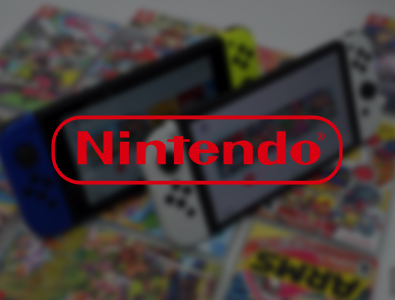On this page
HASBRO's shares have plummeted significantly—could this signal an impending crisis?
INTRODUCTION & DISCLAIMER
Please note that this article is not intended as investment advice and is solely for entertainment, educational, and informational purposes.
Brandon James, the author of this piece, does not own any shares in Hasbro or related entities mentioned here and does not plan to acquire any in the next month.
Previously, on my Wizard of Odds webpage, we explored collectibles to determine if they are genuine investments or just items of interest. game or a gamble.
I believe that any financial investment that carries a risk of loss, while seeking positive returns, can be classified as gambling. Therefore, from my perspective, both investing and trading stocks can indeed be seen as speculative activities. Although some investments, like treasury bonds, offer more security, every investment still carries inherent risks and does not guarantee returns.
A considerable portion of that discussion focused on the launch of Magic the Gathering's 30th Anniversary product and examined the implications of this release. Additionally, it was debated whether Hasbro has been producing too many products in an oversaturated market.
When I wrote that article, Hasbro's stock was valued at over $60 per share, but just a few months later, on March 14, 2023, it had dropped significantly. Hasbro's share price is down to $47.11 per share.
Reviewing historical prices, it turns out there's only a short period in the last five years when Hasbro's stock closed lower than its current price; this trend was observed in March 2020, amid the drastic downturn caused by the Covid-19 pandemic across the market. week Prior to any government stimulus announcements, Hasbro was one of the first companies to rebound almost entirely to its pre-pandemic stock price.
Recently, Bank of America reiterated its stance that Hasbro is a strong sell, a viewpoint that emerged even before major recession indicators appeared. Their analysis noted a shift in sentiment among loyal fans of Magic: The Gathering regarding the 30th Anniversary box set.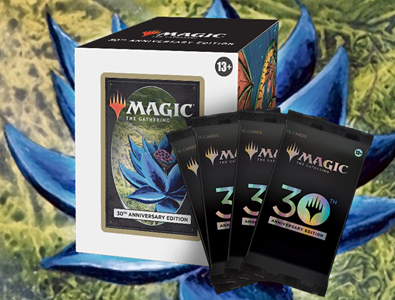
WHAT HAS BEEN HAPPENING?
Interestingly, once sales of the 30th Anniversary boxes concluded, Magic's official Twitter account didn't confirm the product had officially sold out.
Some media outlets even labeled the end of the sale as, “ sold out ,” noting that Hasbro halted sales after just an hour on their website. Mysterious One might expect Hasbro to eagerly declare a sellout of the product available to the public; however, instead, they merely announced that the sale had ended.
For these reasons, I suspect that the Magic 30th Anniversary boxes did not sell out. My suspicion is based on more than circumstantial evidence.
For instance, examining Hasbro's Balance Sheet reveals a significant rise in the 'inventory' line from 2021 to 2022. Whereas, the increase from 2021 to 2020 was even more pronounced, partly due to production resuming post-Covid. Conversely, inventory decreased from 2019 to 2020 for similar reasons.
If we consider the viewpoint that Hasbro has been overproducing cards and inundating the market with new offerings—products buyers struggle to keep up with—this could explain part of the rising inventory levels. However, we must also entertain the possibility that some of this excess includes unsold Magic 30th Anniversary boxes. Inventory Each of these unsold units would have been accounted as $999 in assets, reflecting Hasbro's original pricing strategy. It's important to mention that Hasbro had planned to distribute some of these boxes to select local game stores, raising questions about their inclusion in inventory and whether they were counted at the full asset value.
Currently, the secondary market price for the Magic 30th Anniversary stands at $1,129.36 on TCGPlayer, which previously soared above $1,500 before experiencing a dramatic decline. My assumption is that many local game stores opted to sell their complimentary boxes for cash on the secondary market.
This strategy makes sense; after all, Hasbro priced the 30th Anniversary box at $999.99, plus shipping and taxes. If this product is to become a sought-after collectable, it hasn’t yet had the opportunity to reach that status. It remains uncertain whether it will ever again exceed the $1,500-$1,600 mark.
Recent transactions have generally hovered around the $1,100-$1,200 range, with some units dipping below $1,100 in sales. There was even an instance where a box reportedly sold for the original price of $999.99 that Hasbro had set during direct sales.
Surprisingly, the market value has remained fairly stable despite numerous units sold on the secondary market being originally acquired for free.
Speculation suggests that a significant number of boxes currently circulating may have been provided at no cost by Hasbro.
It's well-known that the Magic: The Gathering franchise is a major revenue source for Hasbro, meaning the company's financial performance is heavily influenced by this key brand. Therefore, while it might seem promising that Magic revenues have surpassed a billion for the first time, some analysts hold concerns that 2023 could be challenging, given that much of that income could come at the cost of oversaturation in the marketplace and potential consumer disengagement.
The looming issue is that 2023, and possibly even 2024, may not bode well for Hasbro. Both Hasbro and Magic: The Gathering rely on consumer discretionary spending.
Amid soaring costs for everyday essentials due to inflation over recent years, experts anticipate an economic downturn (with varying degrees of severity) on the horizon. This could lead prices to revert to pre-pandemic levels, though a full recovery seems improbable, and many individuals have already felt the impact.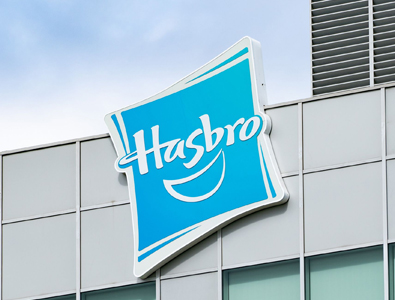
WHAT ARE THE PROBLEMS COMING UP?
In fact, American consumers have surpassed pre-pandemic levels of average credit card debt, while interest rates on variable products have escalated beyond previous highs due to ongoing Fed policy adjustments.
This situation creates a vicious cycle. When interest rates rise and the costs of basic goods (alongside rent and healthcare) also increase, it reduces the disposable income available for paying down credit card debt. Many people live on the financial edge, making it possible that they’re unable to cover basic needs without resorting to additional credit card use.
According to LendingTree Consequently, consumers find themselves making lower payments on high-interest credit cards while accruing new charges that exceed their monthly repayment amounts.
In conclusion, the segment of discretionary consumer spending is likely to face a tough couple of years in the near future. However, certain niches within this sector, such as collectibles, saw a surge during the Covid-19 pandemic, supported by stimulus checks that became discretionary funds.
Moreover, the collectibles market faced limited competition for discretionary spending as many businesses like restaurants and entertainment venues shut down temporarily during the pandemic.
In essence, many individuals, who might have spent money on Magic cards given the chance, found themselves with extra funds at a time when their spending options were restricted. To summarize, the Covid-19 pandemic inadvertently benefited collectibles, particularly as stimulus payments flowed to consumers.
Regrettably for Hasbro, that opportunity has passed. The company aimed to capitalize on the influx of returning players to the game, but this aggressive approach may yield only short-lived success. In the long run, I anticipate that the Magic: The Gathering brand will revert to a more stable release schedule with predictable sales.
Hasbro is not aligned with the overall market trends.
Explore the top online casinos available in your nation.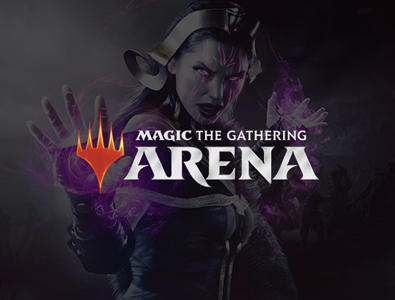
Tool for calculating lottery jackpot ticket sales.
Participate in slot tournaments offering enormous prize pools.
HASBRO's stock has seen a significant downturn—could this indicate approaching challenges?
Please note that this article is purely for entertainment, educational, and informational purposes, and should not be interpreted as stock market advice.
Brandon James, the author of this article, currently holds no shares in Hasbro or any other mentioned companies, and has no intention of acquiring any shares within the coming thirty days.
In previous discussions on my Wizard of Odds page, we delved into the collectibles market, pondering whether these items serve as investments or simply as forms of entertainment.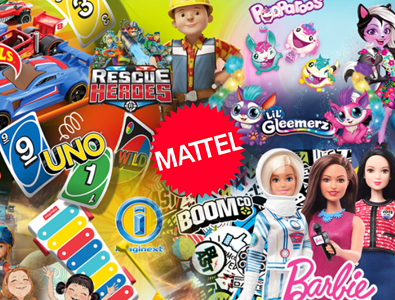
As stated previously, I view investing as inherently risky with no certainty of returns, likening it to gambling. While some investments, like treasury bonds, may appear safer, they still carry a risk, making them part of the broader gamble that is investing.
A considerable portion of that previous article focused on Magic the Gathering's 30th Anniversary product , analyzing the implications of its release. It also raised questions about whether Hasbro is overwhelming the market.
At the time of that article's issue, Hasbro's stock was priced at over $60 a share, yet just three months later, on March 14th, 2023 at 14:15 EST, we observe that
Historical price records reveal that only once in the past five years has Hasbro's stock closed lower than its current trading value; that instance occurred in March 2020 during the Covid-19 pandemic when the entire market, aside from certain healthcare stocks, suffered significant losses.
Before any government financial aid was announced, Hasbro was among the initial stocks to bounce back close to its pre-pandemic valuation. Fiscal Year 2021 Recently, Bank of America has repeatedly classified Hasbro as a strong sell, a sentiment that emerged prior to notable recession warnings. Their evaluation was heavily influenced by the reaction of the devoted Magic: The Gathering community towards the 30th Anniversary box set.
Curiously, even though the sales for the 30th Anniversary product concluded, Magic's official Twitter account did not declare it officially sold out.
Some reports characterized the end of sales as, “
,” as Hasbro ended the sale just an hour after the product became available on their website.
One would naturally expect Hasbro to have proudly declared that all units intended for public sale were sold out, yet such an announcement was not made. Instead, they merely stated that the sale had concluded through Magic: The Gathering.
For these reasons, I speculate that the Magic 30th Anniversary product did not completely sell out. My conjecture, however, relies on additional circumstantial evidence.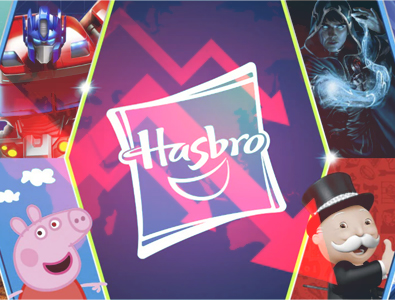
An examination of Hasbro’s Balance Sheet illustrates a noticeable rise in the ‘ Goods Inventory ’ category when comparing 2022 to 2021. It's also worth noting that inventory saw a considerable boost from 2021 to 2020 due to a resurgence in production as the world emerged from the grip of the Covid-19 pandemic. Conversely, inventory levels dropped from 2019 to 2020 for similar reasons.
Considering the argument that Hasbro has been excessively producing cards and inundating the market with new offerings that consumers have not been able to keep pace with, this certainly helps to explain the uptick in inventory levels. It’s reasonable to speculate that some of these inventories stem from unsold Magic 30th Anniversary boxes.
Each unsold box would be recorded as an asset worth $999, which was the planned retail price. Notably, Hasbro had pre-designated some boxes as giveaways to select local game stores, leaving it uncertain whether those sets are part of the inventory and, if so, at what value they were recorded.
Currently, TCGPlayer lists the Magic 30th Anniversary box at a secondary market price of $1,129.36, though it previously surpassed $1,500 before experiencing a significant decline. I suspect that many of the local gaming stores chose to resell their complimentary boxes for cash in the secondary market.
***
This approach makes sense; after all, the 30th Anniversary product was offered by Hasbro at $999.99, not including shipping and taxes. If this anniversary product is destined to become a sought-after collector's item, that potential hasn't yet fully materialized. It’s unclear if it will ever reach the $1,500-$1,600 price point again.
Recent market transactions have primarily occurred in the $1,100-$1,200 range, with some units selling for under $1,100 on the secondary market. In one instance, a box reportedly sold for the same $999.99 that Hasbro originally charged when selling directly to customers.
The short answer is: I don’t think so.
Despite the circumstances, the market price has surprisingly remained stable, especially considering that some of the units now being sold on the secondary market originated as complimentary giveaways.
There’s growing speculation that a significant number of boxes in circulation may have been provided to retailers at no cost.
The impact of the Magic: The Gathering franchise on Hasbro’s financial performance is undeniable—the company's fortunes largely mirror that of its most significant brand. As such, even as Magic's revenues surpass a billion dollars for the first time, some analysts are concerned that 2023 might prove challenging, partly due to market saturation and customer alienation.
The biggest challenge looming ahead is that both 2023 and potentially 2024 may not bode well for Hasbro. In general, Hasbro, along with Magic: The Gathering, deals in products that rely heavily on discretionary spending.
Amidst rising costs for essential goods due to inflation over the past few years, economists widely anticipate an economic downturn (the severity varies). This could lead to a regression in prices toward pre-pandemic levels, although a full return is unlikely as many consumers have already absorbed the impact.
Americans have surpassed their pre-pandemic averages for credit card debt. Moreover, interest rates on variable-rate products are now elevated, as the Federal Reserve continues to raise rates.
This situation generates a detrimental cycle, necessitating additional credit card spending, even as spending levels are projected to rise.
With rising interest rates and prices of everyday goods climbing (including rent and healthcare), it's expected that individuals will have less disposable income available to reduce credit card balances. Indeed, many in society appear to be on the financial edge, struggling to meet basic needs without resorting to further credit card charges.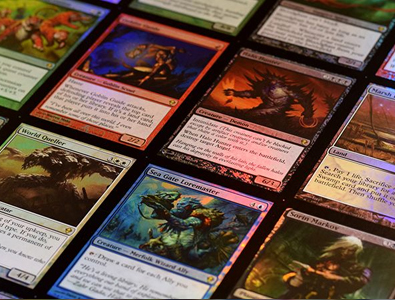
IS HASBRO IN TROUBLE?
Not really. I don’t think so.
Consequently, overall, people are making smaller payments on higher-interest credit cards while simultaneously incurring new charges that exceed their previous payments.
In summary, the discretionary consumer spending sector is likely headed for a tough couple of years ahead. However, certain areas within this sector (like collectibles) saw a surge due to the Covid-19 pandemic and the ensuing stimulus funds that became discretionary spending for many.
Additionally, the collectibles market had fewer competing categories for discretionary funds—highlighted by many states closing down indoor dining and entertainment venues for extended periods.
Ultimately, this resulted in a situation where individuals (who might have purchased Magic products) received an influx of discretionary cash but had limited options for spending it. In essence, Covid-19 turned out to be advantageous for the collectibles market, largely thanks to the direct stimulus payments to the public due to the pandemic.
Regrettably for Hasbro, that opportunity has passed. The company opted for a strategy aiming to capitalize on the influx of players returning to the game, yet it seems that this aggressive approach may yield only short-term benefits. Going forward, I anticipate that the Magic: The Gathering brand will revert to a more traditional release schedule with steady sales patterns.
Hasbro is not aligning with the broader market trends.
CONCLUSION
Explore the top online casinos available in your region.
A tool to calculate lottery jackpot ticket sales.
Participate in slot tournaments that feature enormous prize pools.



